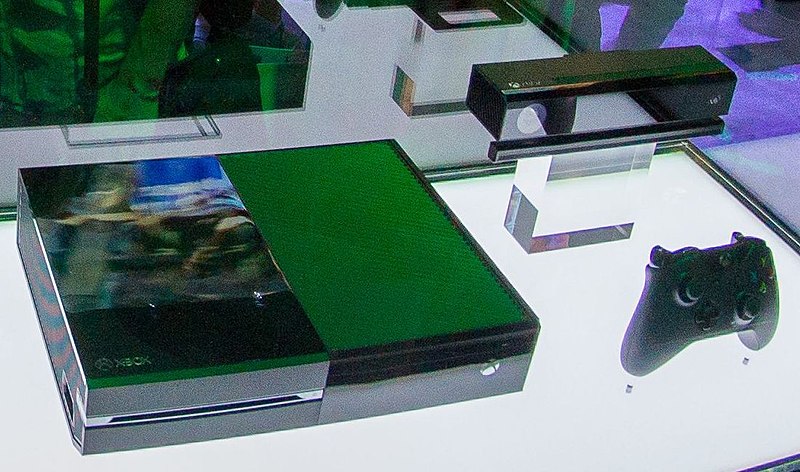- ARPDAUPosted 12 years ago
- What’s an impressive conversion rate? And other stats updatesPosted 13 years ago
- Your quick guide to metricsPosted 13 years ago
DRM: necessary evil or consumer insult
I was recently interviewed by Will Porter (@batsphinx) for PC Zone’s feature on DRM, and particularly Ubisoft’s draconian measures.
I’ve transcribed my bit below. You should read the full article on PC DRM on GamesRadar.
Nicholas Lovell, founder of Gamesbrief, is an expert in the business of gaming. We got in touch to find out how increasingly stringent DRM demands are affecting the moneymen of gaming, and just how piracy is changing the gaming we’re used to.
What do you make of the current anti-piracy precautions that we’re seeing?
Defeating piracy is a fine balance. Publishers need to protect their investment in intellectual property without alienating their paying consumers. Disc-based DRM has had its problems and is always cracked, but its existence is, at best, a deterrent and, at worst, a clear reminder to pirates that they are stealing. Always-on requirements have tipped that balance against legitimate customers. There is no doubt in my mind that pirates now have a better experience than legitimate consumers.
Are current publisher measures too draconian, or are gamers being too sensitive?
Not only are they too draconian, they are bizarre. Steam has shown how you can have a balance between regular authentication checks and the ability to play the game without a permanent internet connection. It seems crazy to me that Ubisoft didn’t emulate Steam, which by some estimates has more than half the market, and instead went for their own draconian system.
My belief is that Ubisoft are targeting the wrong metric. They are trying to reduce piracy. I think that they’ll succeed, but I also think that they’ll reduce their sales. That’s surely not the objective.
In Ubisoft’s position, and indeed EA’s, what else could they have done other than enforce an always-on internet connection on consumers to fight piracy?
Tim O’Reilly once said that the greatest issue facing any author is obscurity, not piracy. The same is true for games. Publishers spend a ton of money on promoting their games. For Modern Warfare 2, the marketing and distribution budget was four times the size of its development budget. So there are ways to see piracy as the start of a relationship with a future customer, not theft.
Project Ten Dollar, EA’s way of rewarding people who buy the original game at retail [this is EA’s marketing drive to include free DRM with store-bought games], is a good example of how to generate revenue from secondhand (and pirated) material. I think it’s a great use of a new business model to reward legitimate, paying, supportive customers, and not punish them.

Above: Assassin’s Creed II – you starting to get the idea?
How else could they do it? Give the whole game away entirely for free, make it small, and charge for DLC. Investigate a virtual goods model (by most estimates, Zynga [creator of Mafia Wars and Farmville] is now more valuable than Ubisoft.) Slash the marketing budget and rely on pirated copies to spread the word about how good your game is, then charge for additional elements. In short, experiment to see how you can add value to your users, not to see what you can take away.
In what other directions is PC gaming evolving as a reaction to the rampant piracy that plagues it?
PC gaming is in rude health, yet selling boxed products at retail is in terminal decline. We are seeing games that charge subscriptions, and games that are monetised entirely through virtual goods. Always-on DRM is not wrong per se. It’s just a huge mistake to charge gamers a huge premium for their content and to limit their ability to play it in a way that pirates are not limited.
Is the change in PC gaming a good thing?
Unequivocally, yes. Publishers are obsolete. Their business model evolved when it was incredibly expensive to distribute a game. Publishers became the gatekeepers determining what got made and their focus was on reducing risk. But now we don’t need gatekeepers because distribution is so close to free as to make no odds. Sure, we need the skills of a publisher: marketing, finance, etc, but we don’t need their risk management any more. We’re in the very early days, but in the long term, the changing business model will be fabulous for PC gaming.
It’s my belief that Ubisoft is hastening this process, by making legitimate, boxed PC games sufficiently unattractive to consumers to drive them away to other forms of PC gaming entertainment. Sometimes, even as an analyst and a former investment banker, the foolishness of big companies makes my jaw drop.
What do you think? Do you agree that Ubisoft have crossed the boundary to punishing legitimate customers or is there DRM a proportionate response to a significant problem? Tell me in the comments below.
Thanks to Steve Hogarty (@misterbrilliant) for permission to repost this interview.












